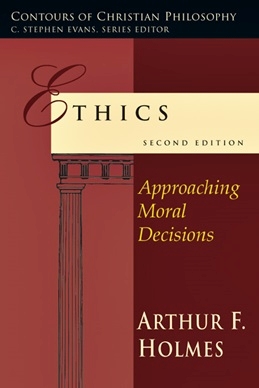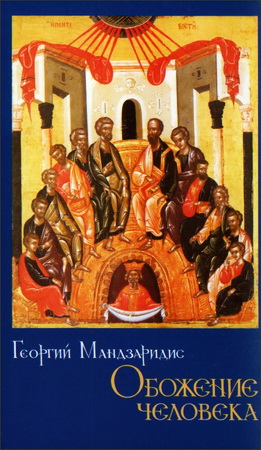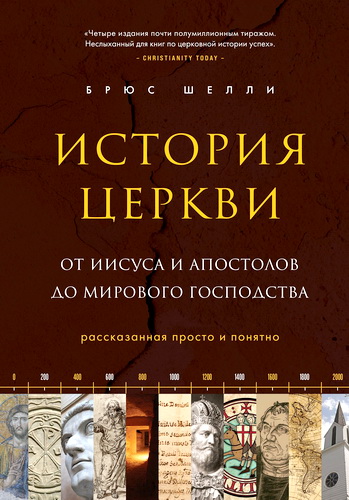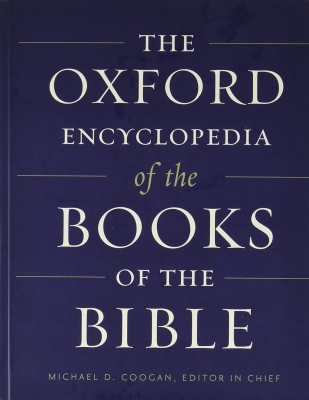
Holmes – Ethics - Approaching Moral Decisions - модуль BibleQuote
The Contours of Christian Philosophy series will consist of short introductory-level textbooks in the various fields of philosophy. These books will introduce readers to major problems and alternative ways of dealing with those problems. These books, however, will differ from most in that they will evaluate alternative viewpoints not only with regard to their general strength, but also with regard to their value in the construction of a Christian world and life view. Thus, the books will explore the implications of the various views for Christian theology as well as the implications that Christian convictions might have for the philosophical issues discussed. It is crucial that Christians attain a greater degree of philosophical awareness in order to improve the quality of general scholarship and evangelical theology. My hope is that this series will contribute to that end.
Although the books are intended as examples of Christian scholarship, it is hoped that they will be of value to others as well; these issues should concern all thoughtful persons. The assumption which underlies this hope is that complete neutrality in philosophy is neither possible nor desirable. Philosophical work always reflects a person’s deepest commitments. Such commitments, however, do not preclude a genuine striving for critical honesty.
Arthur F. Holmes – Ethics - Approaching Moral Decisions
Downers Grove, IL: InterVarsity Press, 2007. – 150 p.
ISBN 978-0830828036
Arthur F. Holmes – Ethics - Contents
General Preface
Preface to the Second Edition
- 1: The Moral Revolution
- 2: Cultural Relativism
- 3: Emotivist Ethics
- 4: Ethical Egoism
- 5: Utilitarianism
- 6: Toward a Christian Ethic
- 7: Moral Knowledge
- 8: The Basis of Obligation
- 9: Human Rights
- 10: Criminal Punishment
- 11: Can We Legislate Morality?
- 12: Sex and Marriage
- 13: The Moral Agent
- 14: Virtue Ethics
Further Reading
Notes
About the Author
More Titles from InterVarsity Press
Other Books in This Series
The Basis for Human Rights
It is one thing to assert human rights and to prefer this doctrine to those of the egoist, relativist or utilitarian. But on what basis can we assert it? How can people “possess” rights that a society and its laws may not recognize? How can rights “inhere” naturally in a person?
The peculiarity of the language is indeed perplexing. A. I. Melden in his book Rights and Persons gives perhaps the best recent explanation. Melden roots rights in relationships between persons considered as moral agents. As members of the human community, a community of moral agents all pursuing their own interests, we accord to others the same right to pursue their interests as we ask for ourselves. The paradigm case is that of a promise: promising is a rights-granting activity, and the recognition of other persons as moral agents is like promising to respect their right to pursue their own ends. In this sense, human relations are rights-granting activities, too, and human rights are logical corollaries of belonging to the human community. They are inherent in life together.
So far so good. But do we not have here another version of what in the last chapter we called a socially imposed ought? What of the person who refuses to live as a participant in the human community, or who simply refuses to play by the rules? Does he not have human rights? What value has a hermit except to himself? And is the harmony of a rights-giving human community any more than a matter of utility? Does Melden really tell us what gives a human person the value we say that person now “possesses”?
The words “endowed by their Creator with certain unalienable Rights” are significant. Rights are not socially accorded but God-given. They may be essential to a human community of moral agents, but it is God who in the first place made us responsible agents to live together in community. What then does it mean to say that rights are God-given?
Let us go back to the underlying assumption of the value and dignity of persons and ask how we account for that. Does it arise only from our value to ourselves and other people? Or does it not refer more fundamentally to our value to God and to his purpose for us in creation? A person is more than a demographic statistic, more than a body plus a flux of experience, more even than an economic and political being and a member of those communities. Created by God in God’s own image, human persons mirror God himself, our personhood reflecting the nature of God, our individuality and relationships and activities finitely imaging God’s character, relationships and activities. God values us as his own creatures (for all creation bears witness), but also as persons (for he too is Person). To treat a person as a person, to respect her rights as a person, therefore respects both God’s handiwork and God himself. To abuse a person, to violate her rights, is to disrespect God and depreciate his image in her. It is in effect an act of blasphemy, for the sanctity of persons reflects the sanctity of God.[4]
But we can go further than this. To image God in his creation is to be a caring steward of our environment and a responsible agent in every sphere of activity. Human rights are in effect the right to fulfill our God-given calling freely, without obstruction by others. The right to be treated as a person is then the right to the responsible life God has purposed for us.
A Christian understanding of human rights thus goes beyond the Enlightenment understandings incorporated into a democratic political heritage. A right is a license, not to psychological or ethical egoism, not to the exaltation or exaggeration of our liberties, but for personal development through a life of freely given service. Sometimes the conscientious and humble believer, faced with his rights, maintains that a Christian has no rights of his own but has given them all up to Christ. This may be an unwitting depredation of the dignity and value of God’s image in us. What he really means, I suggest, is that he does not insist on justice for himself all the time but is prepared to turn the other cheek and go a second mile out of love. He means that by God’s grace he has the right and privilege of freely serving others. Rights are not ends in themselves to be selfishly and tenaciously grasped (recall Jesus’ own example), but are means to manifesting God’s image more freely. They are to be viewed, like everything else, in theocentric rather than egocentric fashion.





Комментарии
Пока нет комментариев. Будьте первым!